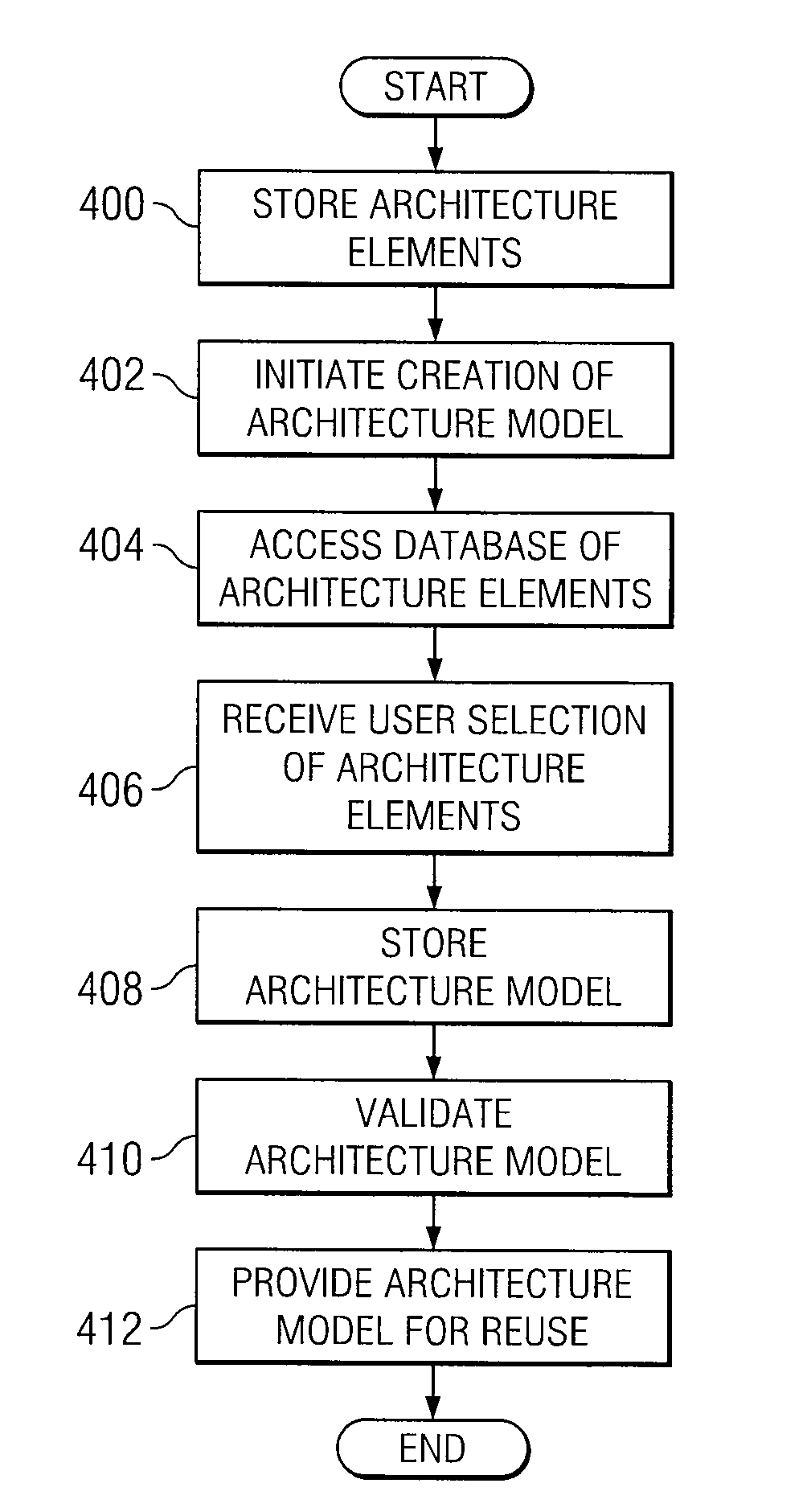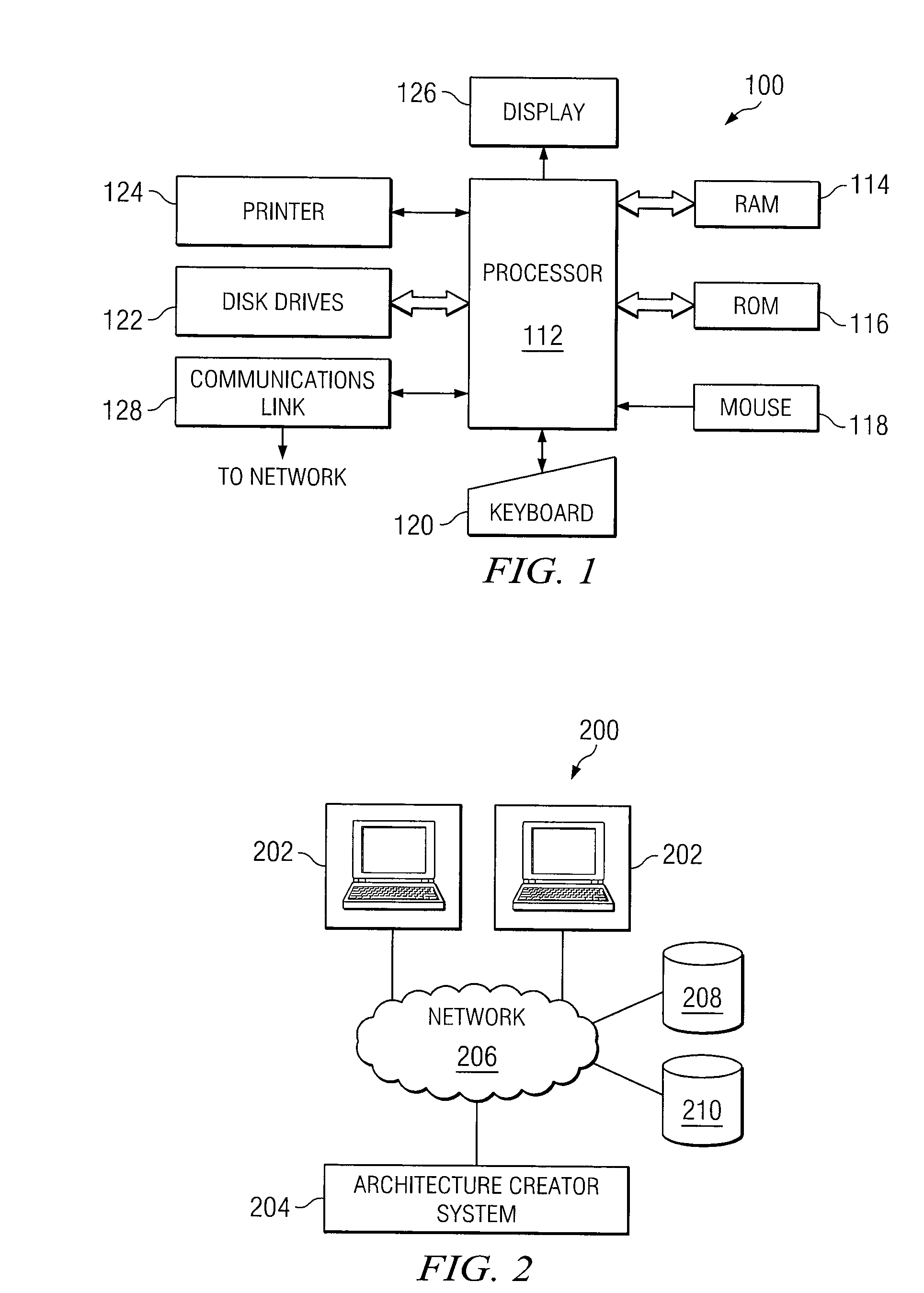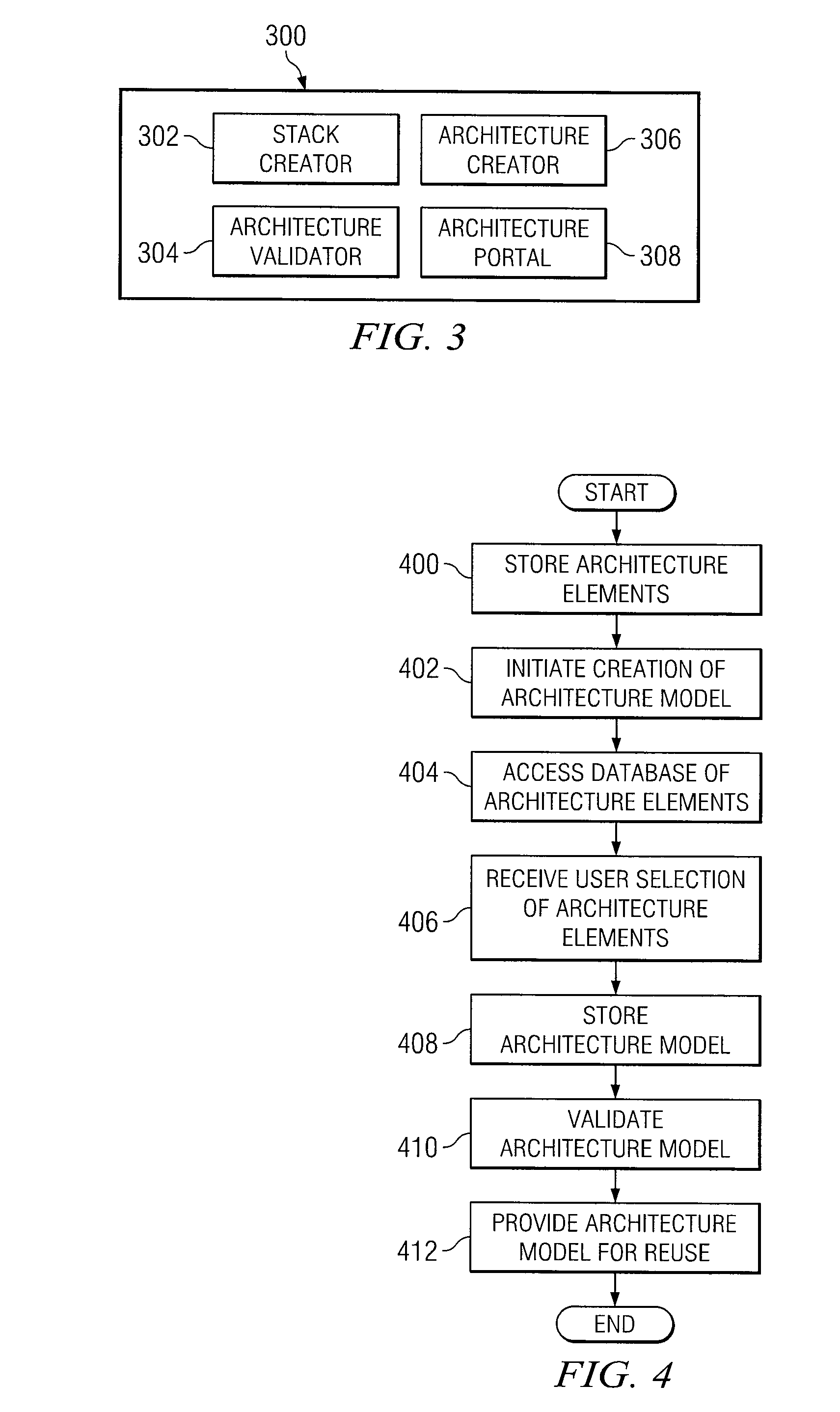System and method for the electronic design of collaborative and validated architectures
a technology of electronic design and validation, applied in the field of electronic design, can solve the problems of not providing automatic validation of architectures, tools that do not automatically enforce technology policies and layout and naming standards, and tools that do not provide automatic linkage to and validation against business requirements and other project deliverables, so as to reduce maintenance or architecture models, reduce development time and cost, and build robust architectures
- Summary
- Abstract
- Description
- Claims
- Application Information
AI Technical Summary
Benefits of technology
Problems solved by technology
Method used
Image
Examples
Embodiment Construction
[0014]The preferred embodiment of the present invention and its advantages are best understood by referring to FIGS. 1-4 of the drawings, like numerals being used for like and corresponding parts of the various drawings.
[0015]The systems and methods of FIGS. 1-4 provide for a architecture design environment that utilizes consistent tools and consistent data to enable collaboration amongst designers and to improve the efficiency of electronic design. Architecture systems and components are maintained in a centralized repository making it possible for designers to draw from the same set of data and create designs that eliminate invalid and inconsistent components. Architectures may be stored both as component parts and as whole architectures. As a result, whole systems and component parts are available for use by designers.
[0016]FIG. 1 illustrates a general purpose computer 100 that may be used for the electronic design of collaborative and validated architectures, in accordance with ...
PUM
 Login to View More
Login to View More Abstract
Description
Claims
Application Information
 Login to View More
Login to View More - R&D
- Intellectual Property
- Life Sciences
- Materials
- Tech Scout
- Unparalleled Data Quality
- Higher Quality Content
- 60% Fewer Hallucinations
Browse by: Latest US Patents, China's latest patents, Technical Efficacy Thesaurus, Application Domain, Technology Topic, Popular Technical Reports.
© 2025 PatSnap. All rights reserved.Legal|Privacy policy|Modern Slavery Act Transparency Statement|Sitemap|About US| Contact US: help@patsnap.com



